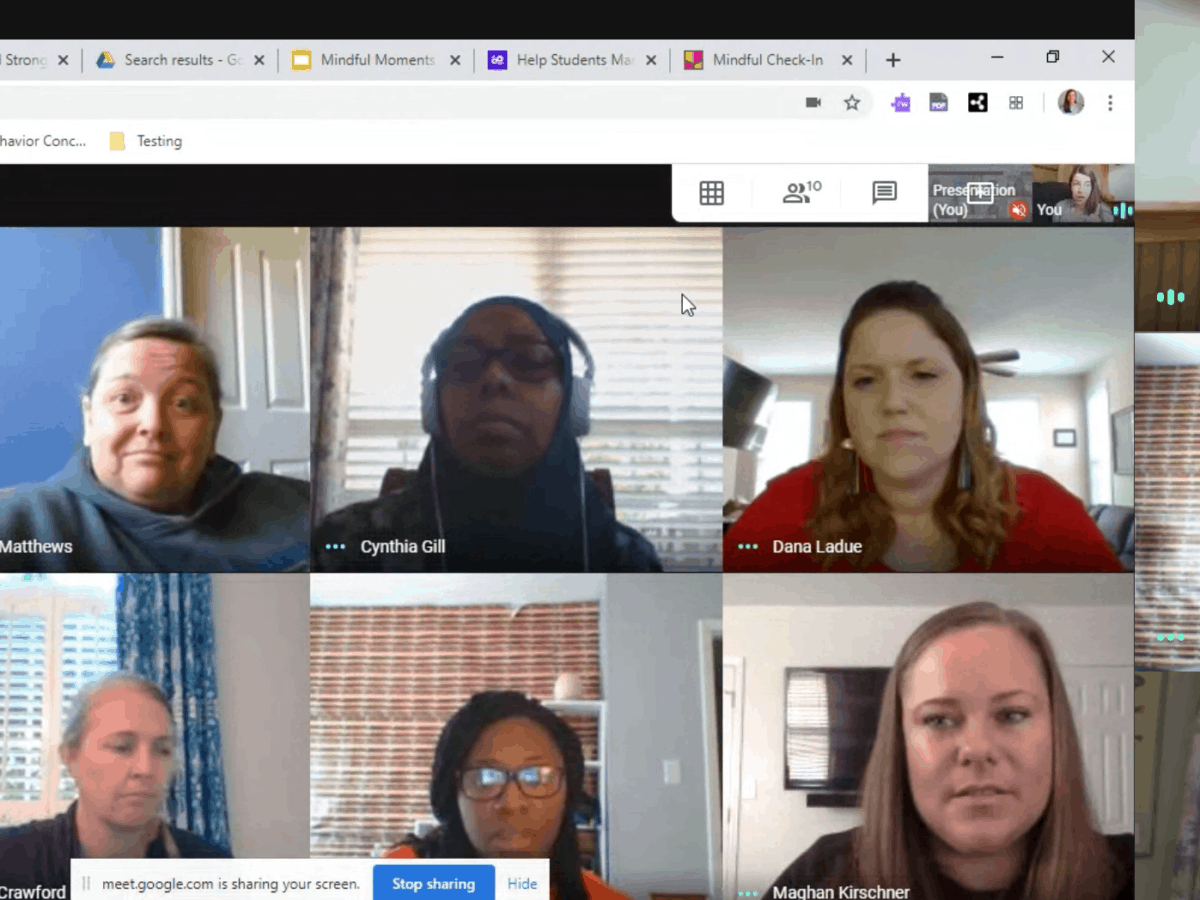
Ask teachers on any given day what it’s like to teach remotely during the coronavirus pandemic, and you’ll hear a variety of responses. Tasked with transferring their curriculum to a virtual-learning environment, it’s likely even the most seasoned veterans are facing unique challenges. For beginning teachers, this sudden transition to remote learning has compounded what was, already, a new experience.
Enter the North Carolina New Teacher Support Program (NC NTSP). Since 2011, NC NTSP instructional coaches have supported beginning teachers across the state as they navigate the daily tasks of lesson planning, instructional delivery, and assessing student progress. As part of that support, NC NTSP instructional coaches provide guidance for those who wish to utilize digital and online resources in their daily instruction. When Gov. Cooper announced that North Carolina’s public schools would transition to remote teaching and learning, NC NTSP instructional coaches were poised to meet the challenges associated with this “new normal.”
Traditional coaching provided by the NC NTSP includes ongoing face-to-face support in planning, instruction, and assessment, as well as professional development. NC NTSP coaches are continuing their support in this new virtual learning environment. They are providing educators with strategies that ease the tension they may feel between equitable access and providing students with high-quality remote education. They provide flexible meetings, recording coaching sessions to access later, and provide follow-up with virtual professional development and resources to their teachers.
Impacts on coaching beginning teachers
The mandatory closing of schools has had a major impact on the support that NC NTSP provides to teachers across the state. In the course of 24 hours, our entire world was turned upside down. As educators, students, and families begin to adapt to virtual instruction, coaches are trying to figure out how to best support those they serve.
Prior to COVID-19, students were the constant and resources were the variable — now resources are the constant and students are the variable. Challenges with access and equity for teachers and students are ever-present in the coaching support provided by NC NTSP. Instructional coaches have pivoted their teacher support from focusing on classroom management and student learning to emphasizing strategies to organize virtual instruction, delivery, and balancing the personal needs of families with the needs of their students.
NC NTSP coaches across the state have shifted their approaches to incorporating technology tools and blended classrooms teaching through Canvas, Zoom, Google Classroom, Google Hangouts, and WebEx to emphasize the development of the whole teacher.
Adapting to new challenges
In our new reality of virtual instruction, teachers and students find themselves facing many challenges centered around equity in access to devices, internet, home support, and resources. NC NTSP coaches indicate that their support is now more frequently focused on helping teachers to modify instruction so that it engages and meets the needs of their students.
Novice educators are struggling with the various levels of communication they are receiving from students’ families. For example, one teacher in Cumberland County stated that she has half of her families requesting more work and reaching out with questions on how to support their students, while she has yet to hear anything back from the other half of her class. These inconsistencies in student access and support can challenge even the most prepared teachers in the field. NC NTSP coaches have been employing family engagement strategies and encouraging flexibility with instruction, feedback, and assessment.
Beginning teachers are not the only ones that need support with virtual instruction. Families are finding the new instructional platforms confusing and difficult to access. NC NTSP coaches are helping teachers to design user-friendly instructions on how to navigate various digital platforms such as Google Classroom, Canvas, and Seesaw. Teachers and families are collaborating through homeschooling and coaches are streamlining processes that build strong school-family partnerships.
Unexpected benefits of virtual coaching
The current crisis impacting our nation has produced unforeseen positive outcomes for many in the educational sector. Multiple instructional coaches across the state have witnessed an increase in utilization of technology by teachers, that for many had been a foreign concept or something they would “get to” when they found the time. Through the urgent necessity to use these resources to reach their students, teachers have gained confidence within these platforms and are now better prepared to engage students and their families once they return to the classroom.
Coaches have also witnessed deeper connections between them and the teachers they coach, which has positively affected the coaching process. As the quote by John C. Maxwell goes: “Students don’t care how much you know until they know how much you care,” and this is true for all relationships. This period has allowed coaches and teachers to truly know each other and recognize the similarities that exist in all of us. Once we return to normal, this level of interconnectedness can continue because of the foundation, built by all stakeholders, during this unprecedented time.
As for the coaches’ role, we have now thoroughly experienced a different format of coaching teachers and have had opportunities to learn best practices while engaging in effective virtual coaching conversations with teachers. These conversations have occurred more swiftly due to travel being negated from the coaching process.
Coaches have also experienced an increase in responses from teachers who have participated in virtual coaching during this season than during the regular school year. Many times, during traditional operation of school, teachers would only respond to face-to-face coaching. Through this experience, teachers have begun to see how valuable virtual coaching is and how the outcomes can still greatly impact their work even if it occurs online.
Ranging from concerns about working from home, monitoring their children’s remote learning, and even locating which stores in their community have supplies of toilet paper, like most North Carolinians, educators are facing new challenges that disrupt the balance between personal and professional lives. Yet, what has remained consistent for nearly 1,300 first-, second-, and third-year teachers is the support they receive from their NC NTSP instructional coaches — whether that involves managing virtual classrooms, ensuring equitable access to digital learning tools, or simply finding ways to maintain professional connections.
In looking to the future, the challenges of this new normal will serve to enhance an already robust program for mentoring and induction support.
Recommended reading









